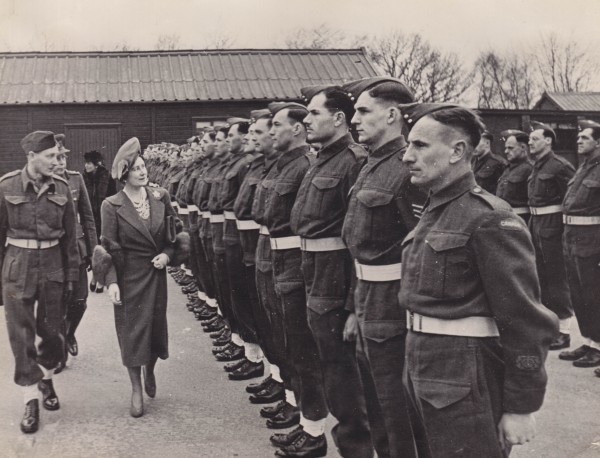On arrival at the railway station we were given sandwiches and tea, and I managed to obtain a pair of boots which were old and worn but at least fitted. We were then entrained and told that we were to go to Gloucestershire. It was a very peaceful journey, and most of us slept through sheer exhaustion. We arrived at Dursley some hours later and were marched to a factory outside the town which had been equipped as a temporary barracks. We were ordered to parade in a large hall, and were addressed by a Brigadier who tried to convince us that we were not members of a defeated army, and told us that we would rest for a day or two and then go to the south coast to prepare to repel the expected invader. This announcement was greeted with groans and jeers as we all hoped for a few days’ home leave after the ordeal of Dunkirk. The following morning the parade was noticeably smaller as many men had left during the night to make their own way home. We were then honoured by a visit from the Queen, who was very charming, but did nothing to raise our morale.

We were allowed into Dursley for ‘leave’ but were under strict orders to be back at the factory by dark.
After about ten days of idling our time away we were reorganised into groups – very mixed groups indeed – and shunted off to various parts of the country. I was sent to Tatton Park near Knutsford in Cheshire where the 50th Division was attempting to reassemble. I was delighted by this because I was now within 10 miles of my parents’ house in Eccles. I ‘borrowed’ a bicycle from outside the Post Office and cycled home. I would not be missed because there was absolutely no organisation except that the officers lived in Tatton Hall and we lived in tents in the grounds. After staying with my parents for two days I thought I ought to go back, so I cycled to Knutsford and left the bicycle on the spot from which I had ‘borrowed’ it. There was still little organisation within the Camp, and no one had noticed my departure and reappearance.